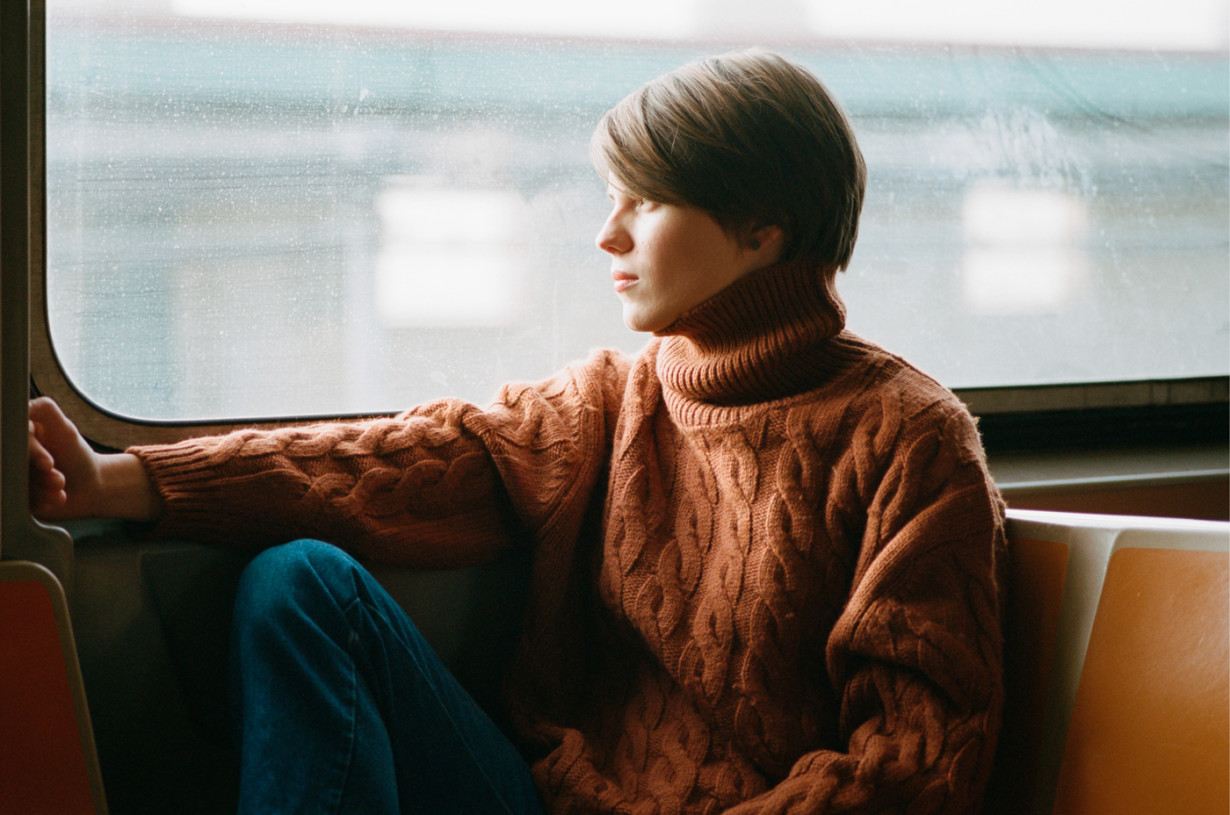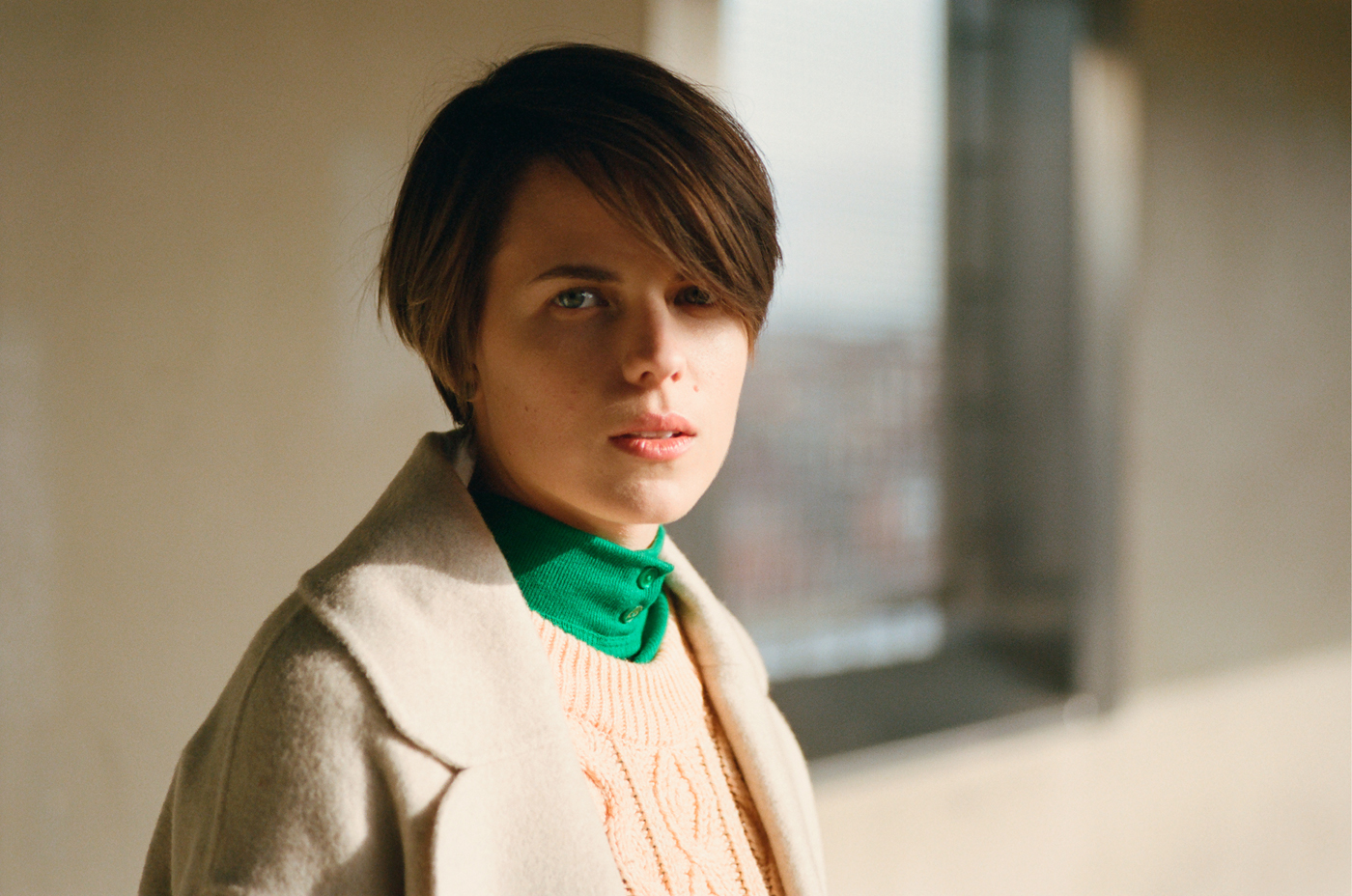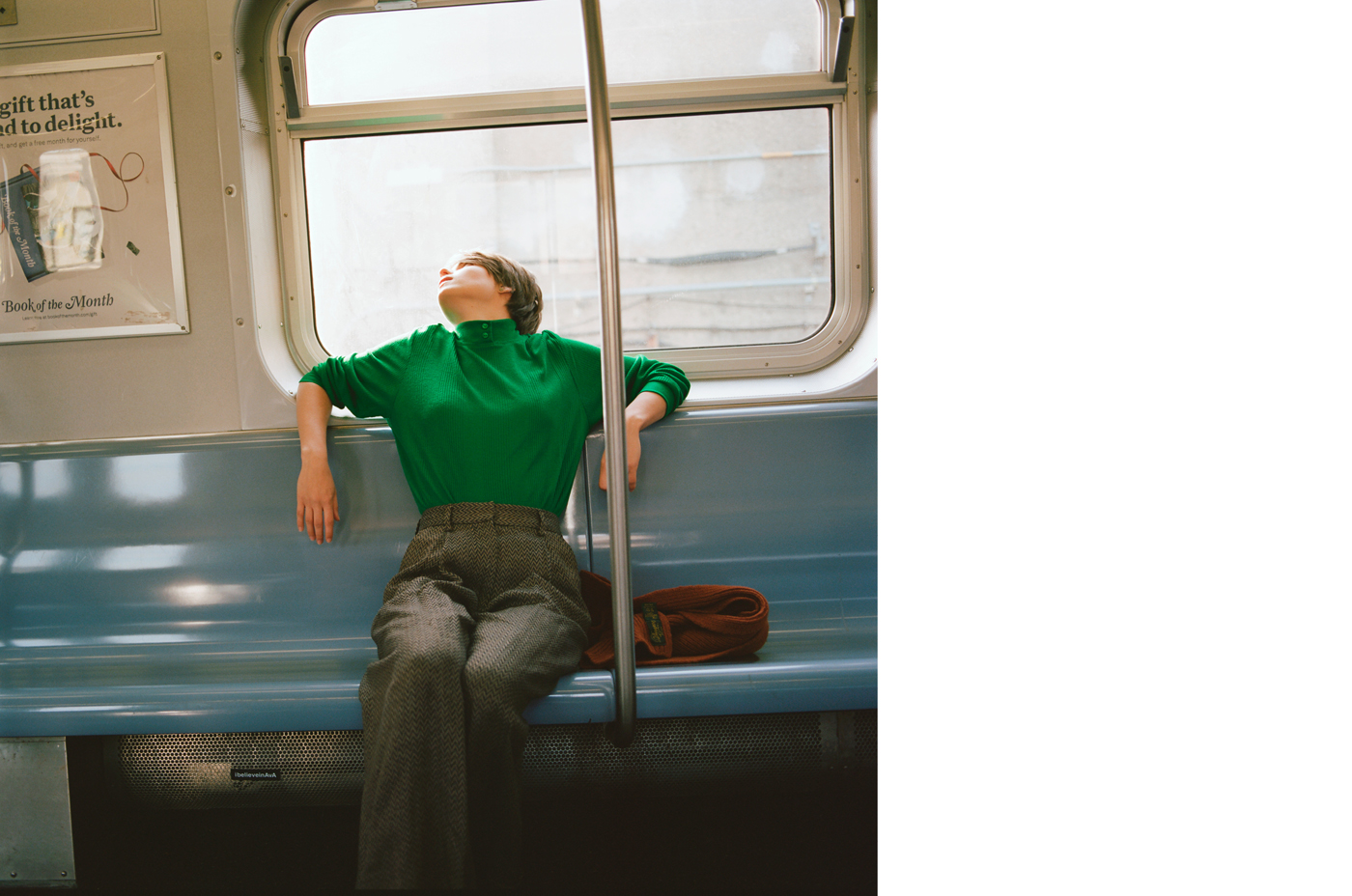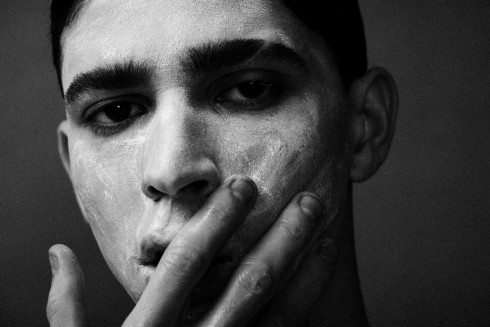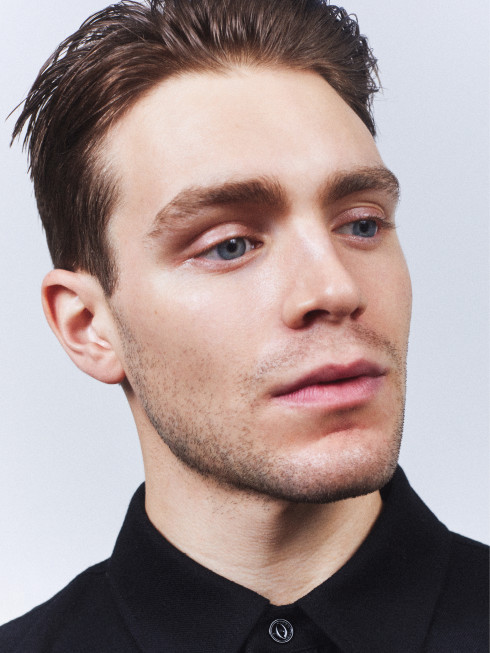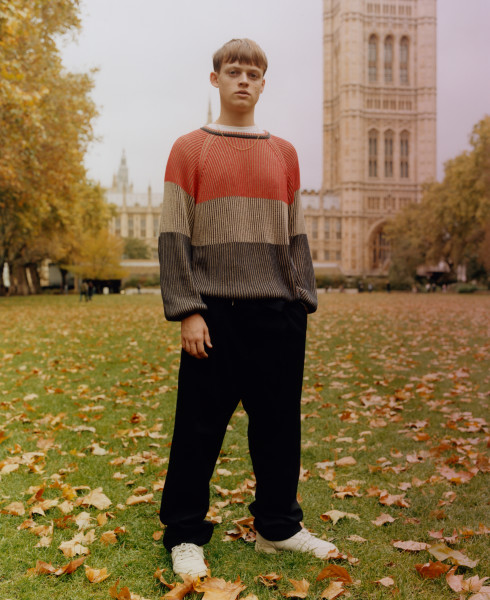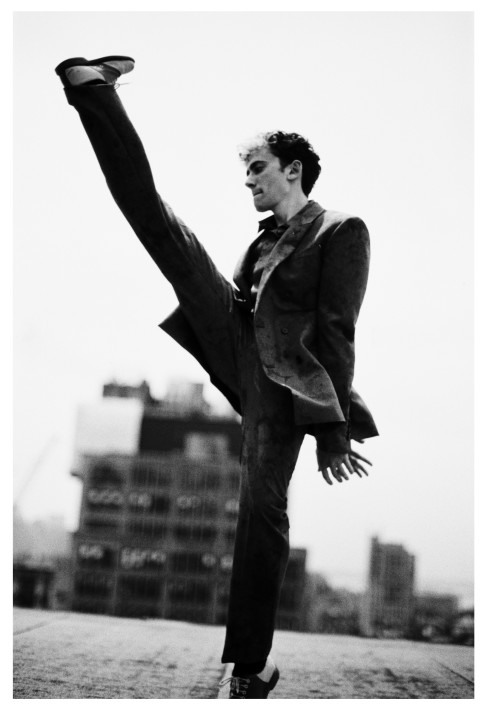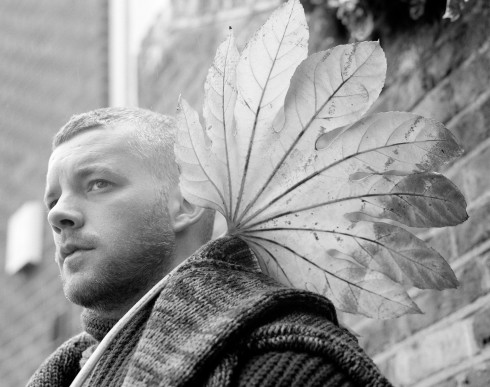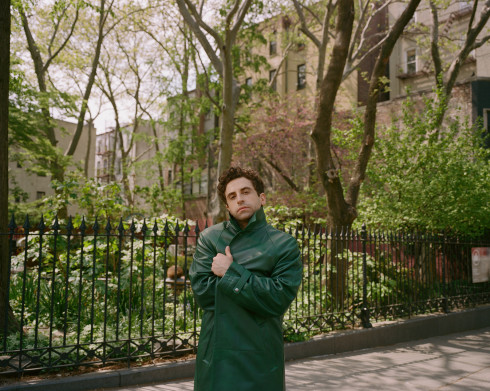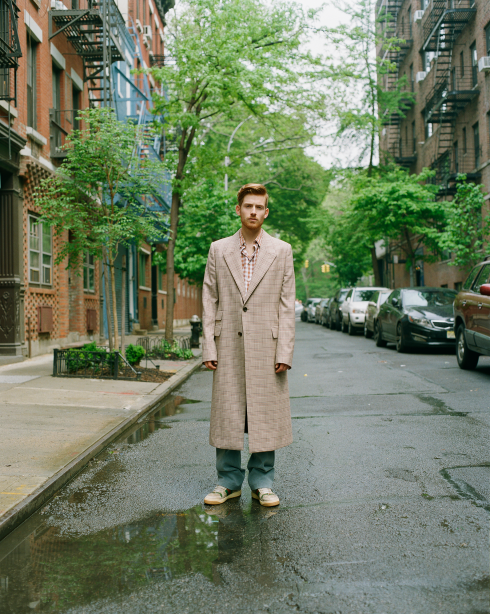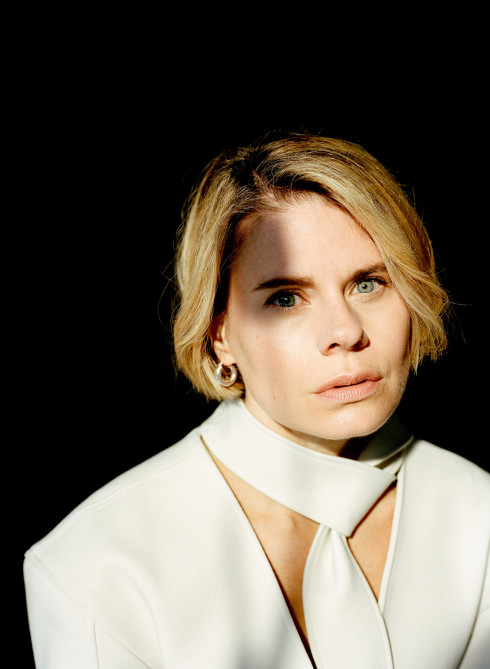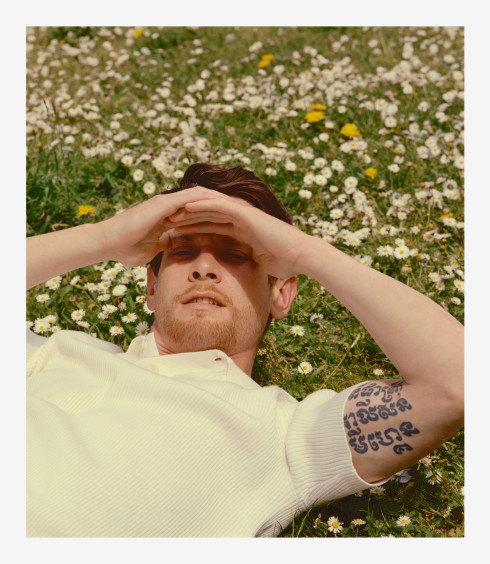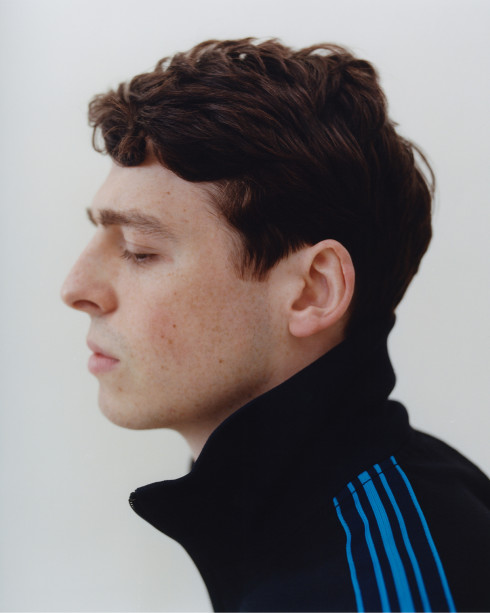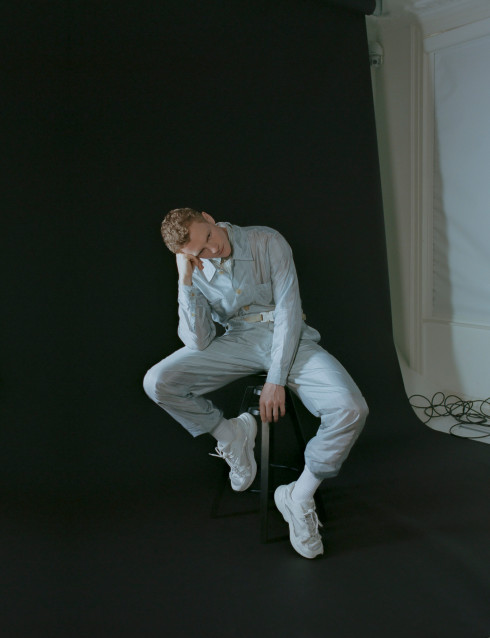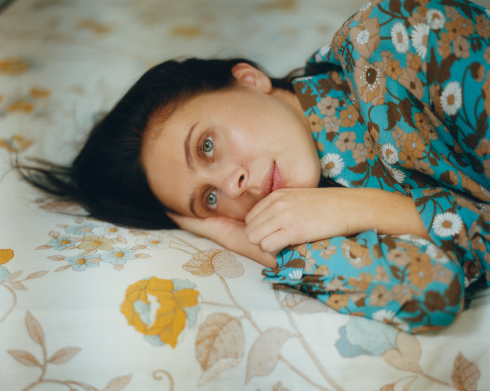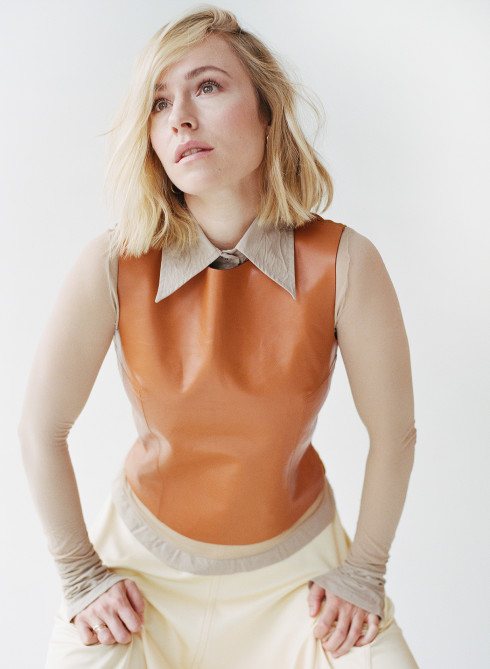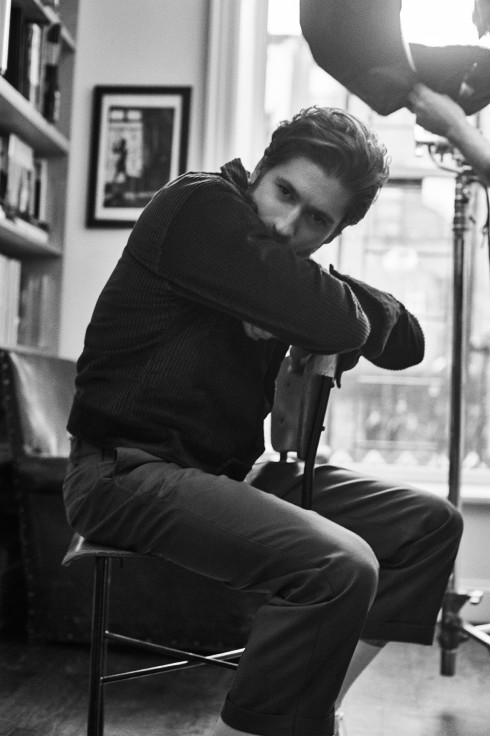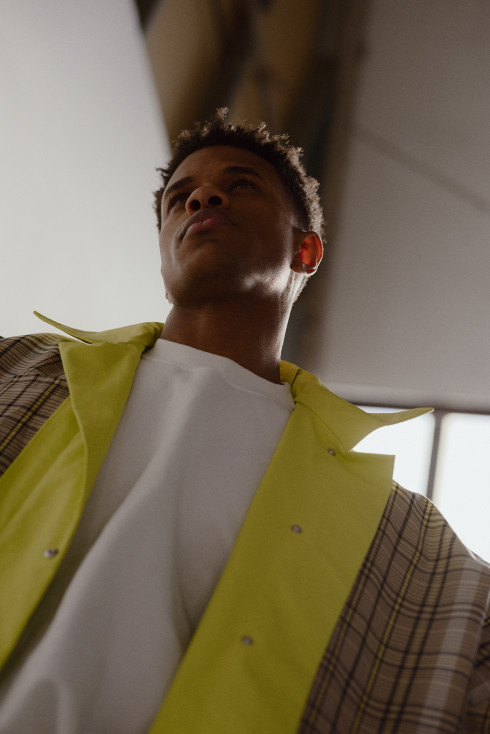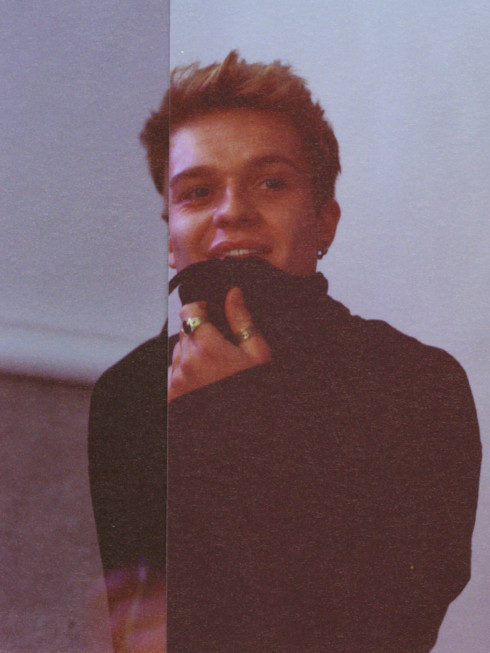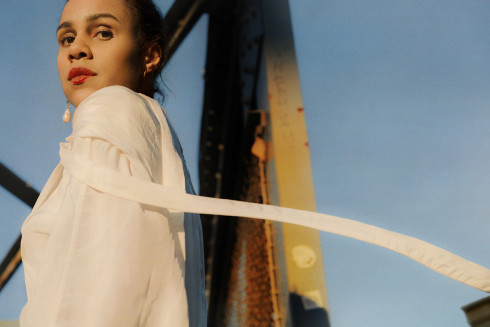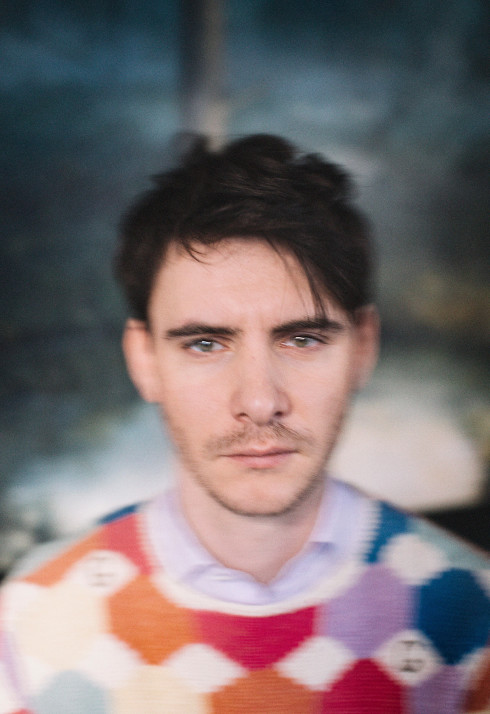- By
- Jonathan Shia
- Photography by
- Annelise Phillips
Styling by Carolina Orrico at Jones Management. Hair by Eloise Cheung at Kate Ryan Inc. using Intelligent Nutrients. Makeup by Akiko Owada.
SARAH DELAPPE
Back in the summer of 2014, the playwright Sarah DeLappe, whose The Wolves is currently running at Lincoln Center Theater, found inspiration at the New Museum. Wandering the galleries of “Here and Elsewhere,” a group show devoted to contemporary art from the Arab World, she found herself focusing, as many authors do, on the language that surrounded her, the way visitors toggled easily between two modes of thought as they viewed work that was often difficult, complicated, and deeply political. “There was something about being surrounded by all of these well-heeled, metropolitan people who would look at this art and then turn to each other and glibly talk about American exceptionalism and then what they were getting for brunch,” she recalls. “That experience made me start writing this dialogue on my phone on the subway which became the beginning of the play, which is these three simultaneous conversations about the Khmer Rouge and the efficacy of tampons or pads.”
The contrast between genocide and feminine products is striking, made all the more so because the conversations bounce between a group of teenage girls stretching in a circle before an indoor soccer game. Those nine unnamed adolescents—identified only by their jersey numbers—are the core of DeLappe’s play, which first premiered last year at the Duke on 42nd Street, was quickly revived for a second run there thanks to its popularity, and transferred uptown to Lincoln Center this fall. It was also named a finalist for the Pulitzer earlier this year. And it’s her first play. “It continues to shock and amaze me that the play continues to have such a life,” she laughs. “I feel extraordinarily lucky.”
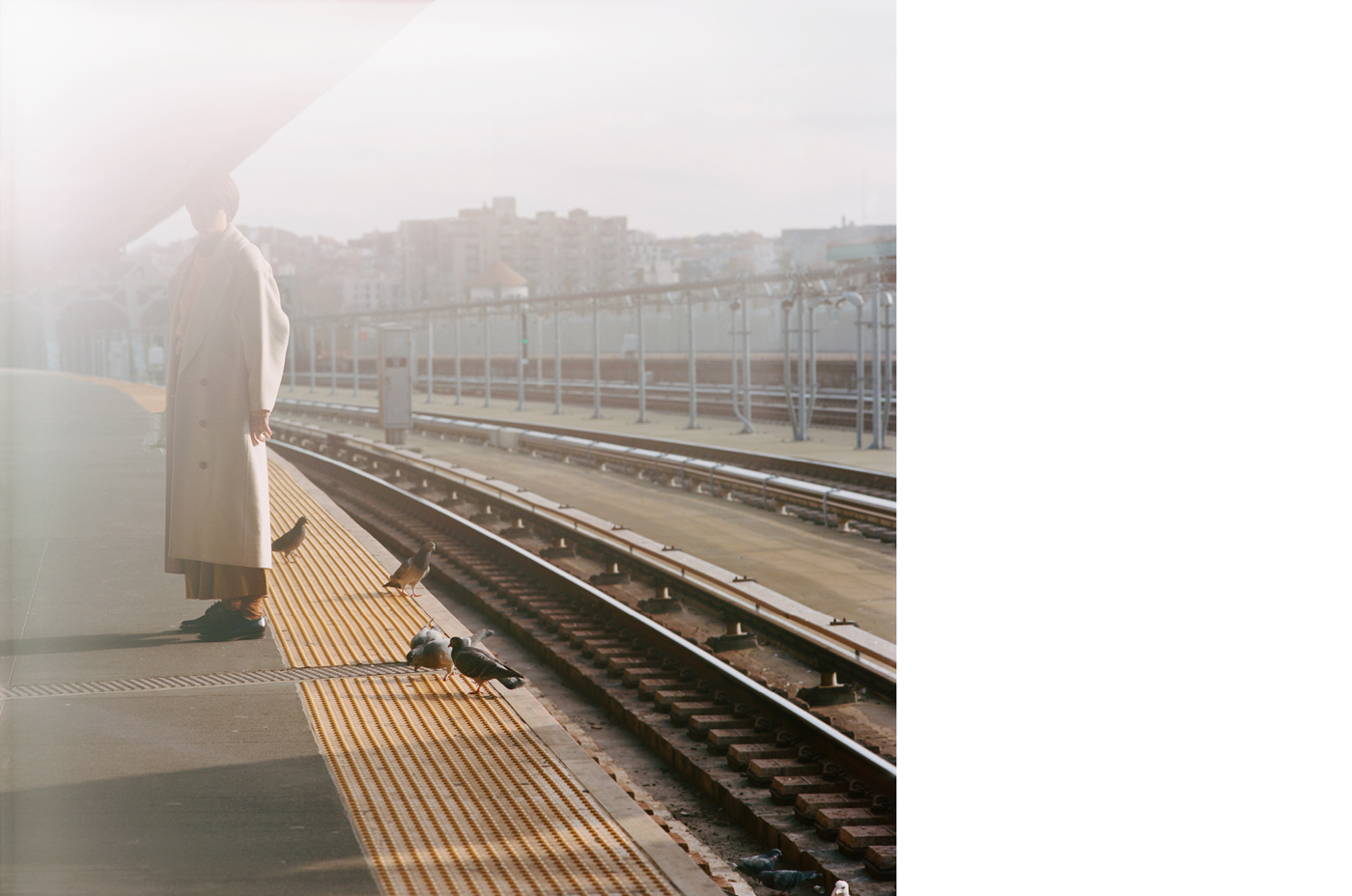
It is exceedingly rare for a début play to receive such accolades, but then The Wolves is an exceedingly rare play. By focusing on teenage girls—at times the most belittled and misunderstood demographic in society—DeLappe, twenty-seven, has brought a new voice into theater that is rarely explored as deeply or reflected as honestly and accurately as it is here. “I hope that any audience member who sees this show walks away feeling like these characters deserve ninety minutes of their time,” she says, “and they aren’t so easily cast aside and either treated as airhead idiots of sexual objects or any fill-in-the-blank, stereotypical representation of girls.”
What is particularly striking about the play is the language. Taking place entirely during warmups and timeouts, The Wolves has very little action per se. The major events all happen offstage, and the thrust of the play comes from the way the girls discuss and dissect them. Their language is rich and nuanced in unexpected ways, yet immediately familiar to anyone who has been within earshot of a teenager recently. DeLappe jokes that it is her “native tongue,” but also credits her work as a tutor while writing the play with helping to keep it honest and precise. “I was very familiar and swimming in that language and the cadence of it and the musicality—the likes, the ums, and the uptalk,” she explains. “I think there’s something beautiful and musical about the way girls wield language. It’s exciting because I feel like youth is always at the forefront of changing language.”
For a play about high school students, there is a refreshing lack of the usual tropes. Romance plays a minor role—The Wolves passes the Bechdel test easily—and very little Mean Girls-style backstabbing occurs. “I wasn’t interested in recreating any stereotypical version of female adolescents in the suburbs of America,” DeLappe says. “I was interested in trying to treat them as complicated, multidimensional people.” The speed with which the teammates become identifiable—even in their matching uniforms—denies anyone who dismisses teenage girls as all the same, and their various fluctuating characters honestly reflect the natural mutability of adolescence. “They’re children, really,” DeLappe explains. “They’re just figuring out who they are and what the world is and what their place in the world is. I think a lot of the play is actually tracking these shifts in identity and this struggle to find out who they are within the peer group. I feel like women especially are socialized to determine their identity within the peer group.”
There is no denying the play’s strengths, but DeLappe suggests that part of its success also comes from the current political climate, in the age of #metoo when Roy Moore’s recently failed Senate campaign has refocused attention on the vulnerability of teenage girls. “There are all sorts of moments in the play where I feel like these girls are trying to figure out what their sexuality is and how to wield it or embrace it,” she says. “There is this looming threat of men offstage who are trying to take advantage of that. I feel like the one solution to this deeply embedded problem is taking girls seriously.”
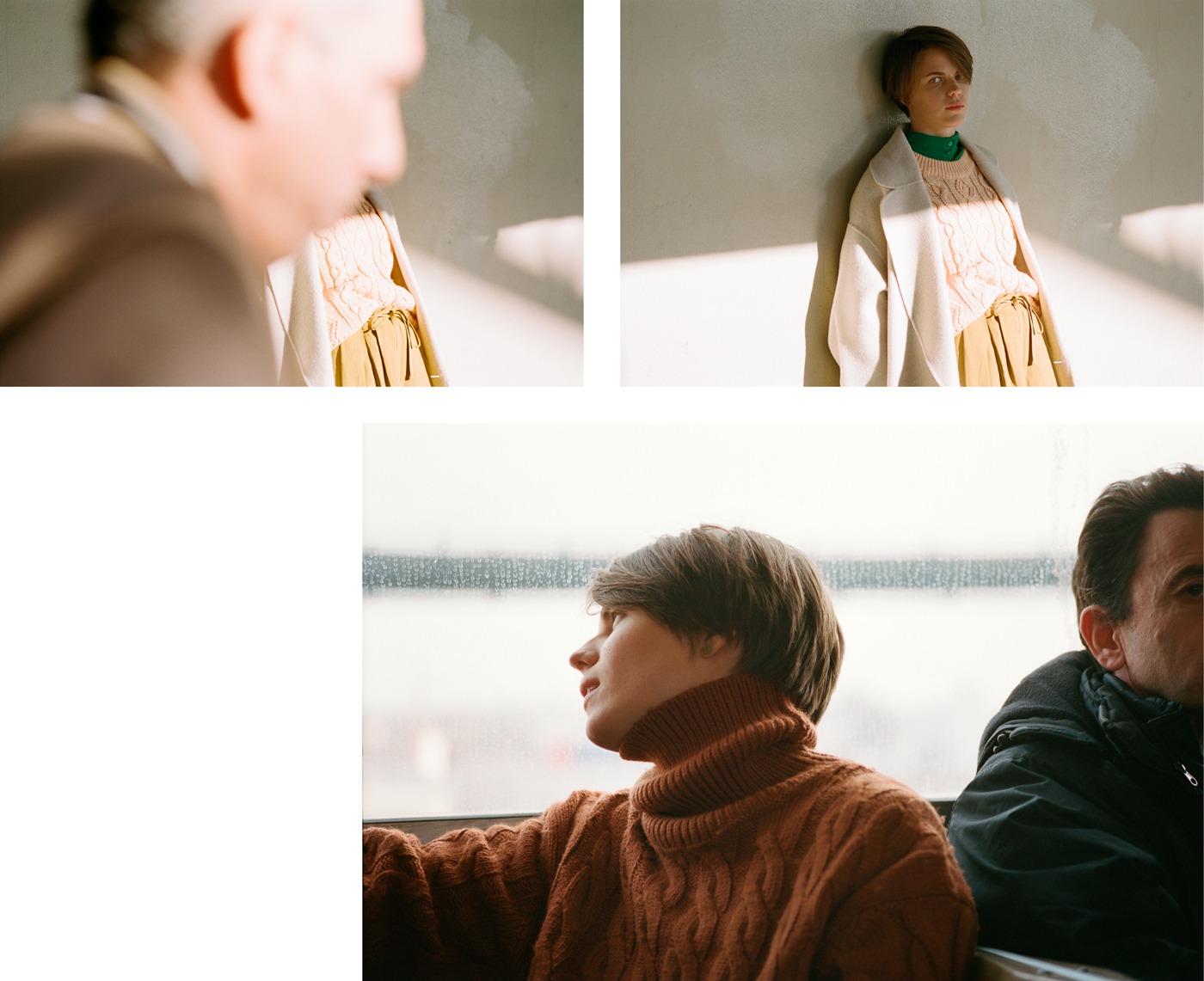
DeLappe, who grew up in Reno, has been drawn to stage since a young age, but she says she initially envisioned herself as an actress, getting her start in The Little Mermaid and other school plays. “I always think it had to do with being a twin,” she offers. “I was drawn to this to slide into an identity that ran parallel to mine and looked like me but had an entirely different makeup.”
She went on to major in American studies and theater studies at Yale and ended up shifting focus and wrote a play as her senior thesis. She was still pursuing her MFA in playwriting at Brooklyn College—Pulitzer winner and Macarthur recipient Annie Baker is a fellow alum—while working on The Wolves, for which she wrote the first draft in three weeks. “It’ll never happen again,” she laughs.
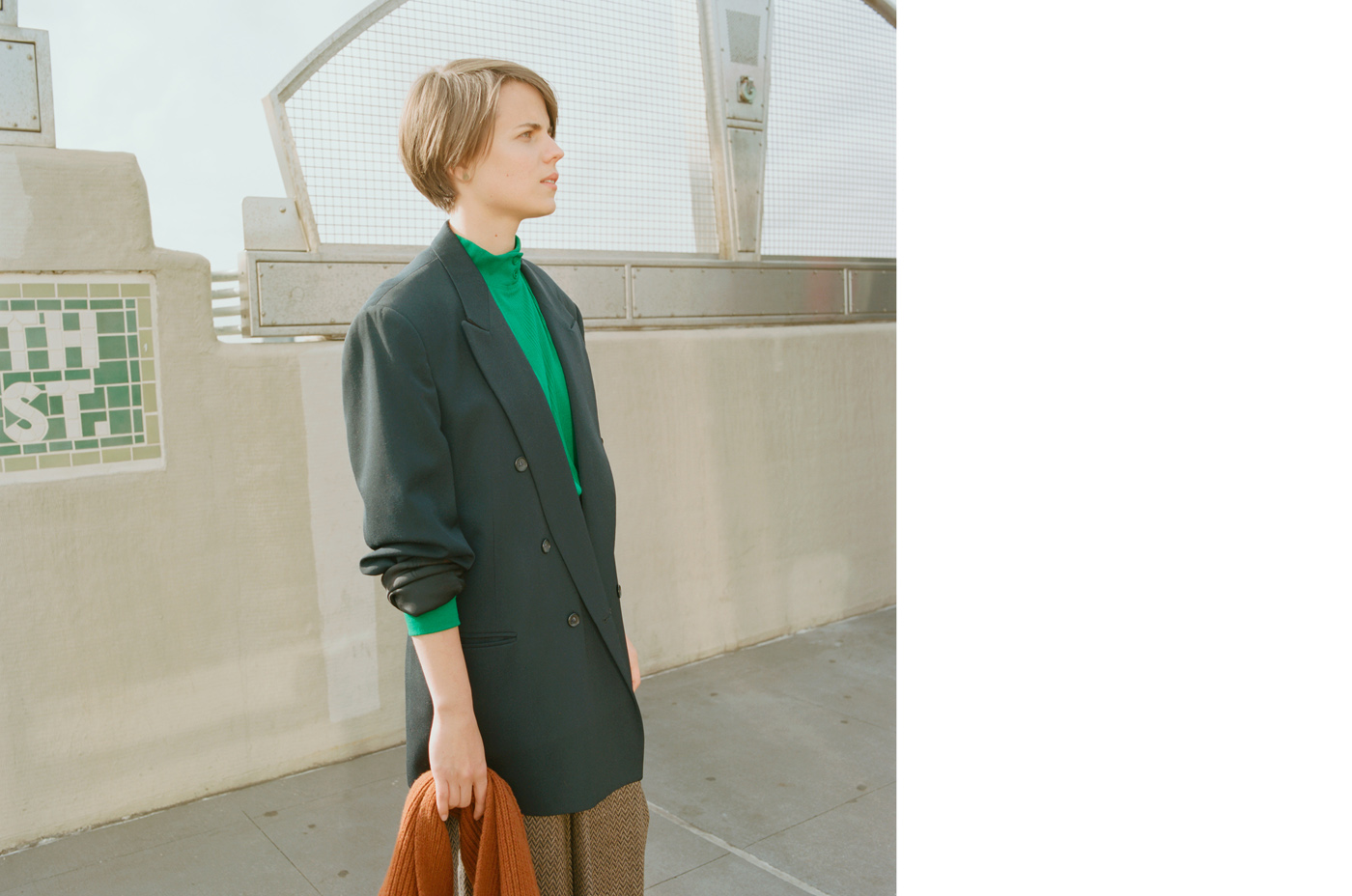
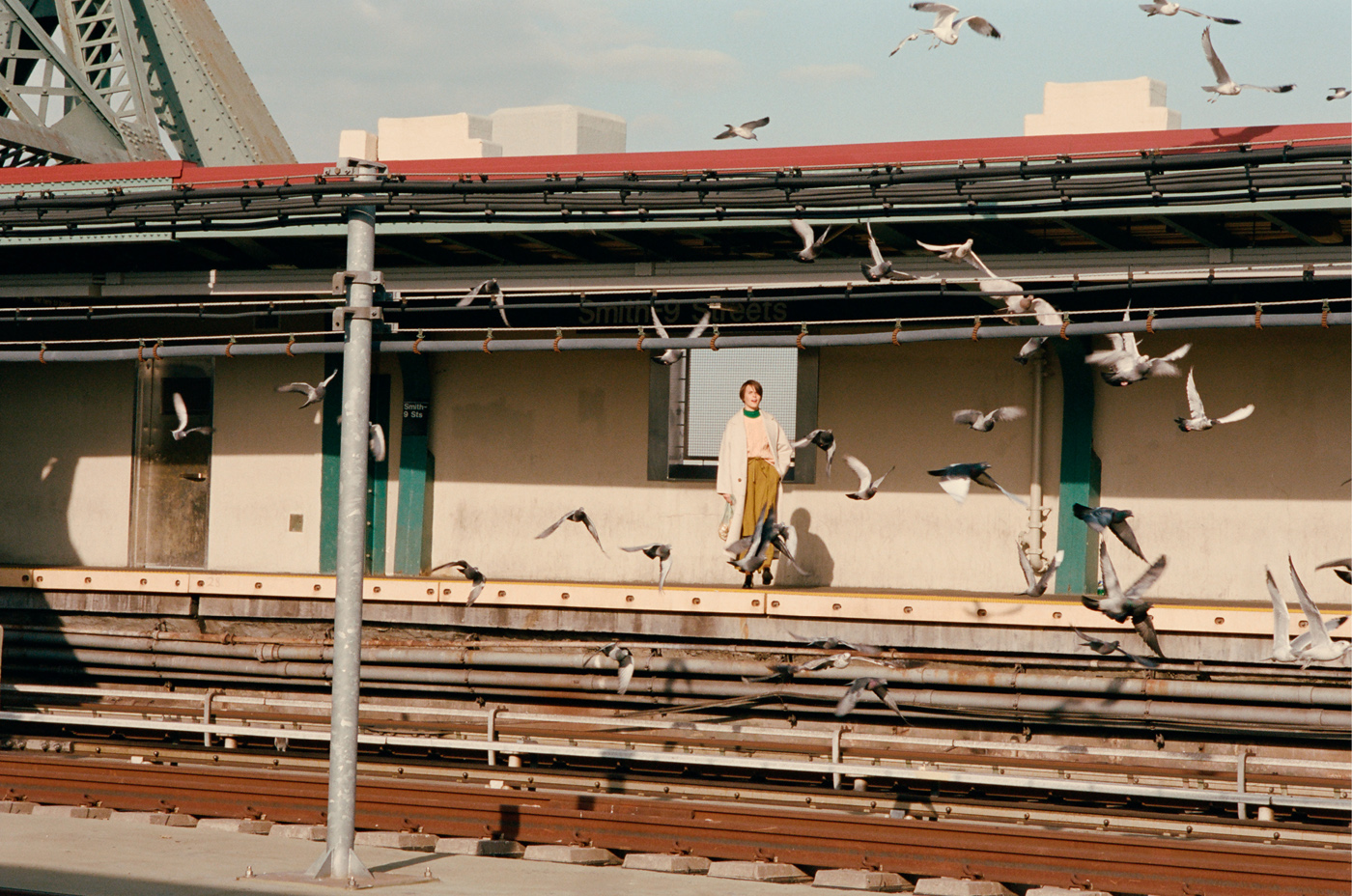
The success of The Wolves over the past year has been a steep learning curve for DeLappe. You can learn how to develop characters and sharpen dialogue in class, but you will never understand the experience of actually bringing a play to the stage—which requires cooperating with a passel of artistic partners from director to actors to lighting designer—until you do it. “The beautiful and terrible thing about being a playwright is that you do have to work in isolation at the beginning,” DeLappe says. “You have to create something out of nothing alone in your apartment, but then in order for it to actually become a play, you have to work with all of these people and find collaborators, which is really hard when you’re starting out. I felt like I was in such a vulnerable position to bring this baby that I had worked on so hard to this room of somewhat-strangers and entrust them with my work.”
Fortunately, much like her characters, DeLappe has found herself dependable teammates, especially the subtle director Lila Neugebauer and the ten standout actresses in the cast. Her own past experiences on stage may have helped DeLappe write with the sensitivity that she now does, perhaps already considering as she sets her lines down how they will sound spoken out loud months or even years down the line. “There was something about being able to step on stage and into someone who had this track and these words and language that was really appealing to me,” she says, “but is even more appealing to me now that I get to create that for other people.”
The Wolves continues through January 7.
- By
- Jonathan Shia
- Photography by
- Annelise Phillips
Styling by Carolina Orrico at Jones Management. Hair by Eloise Cheung at Kate Ryan Inc. using Intelligent Nutrients. Makeup by Akiko Owada.
